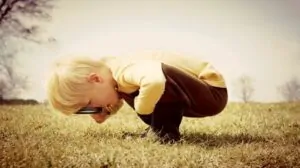Judgement and Curiosity
by Robert Hackman
Photograph by Wondrlust
And as my mind begins to spread its wings
There’s no stopping curiosity
From the song ‘Upside Down’
By Jack Johnson
I was so surprised by a good friend’s response to an error he made. He had left the sunroof of his Audi open while it poured rain, and the interior of his car flooded.
He remained calm and remarkably free of self-judgment or condemnation. I was stunned.
It turns out that with the ingenuity and help of other men, he resolved most of the issues before the end of the next day.
Resolving his predicament was not the lesson for me. The contrast between his response and how I realized I would have reacted was. The incident reminded me that I cannot control what happens to me, yet I can always control (choose) my response.
If it were me, I would have been consumed by negative judgment, admonishing myself for my carelessness.
I find my inner ‘judger’ can get triggered at any moment. When it does, there is nothing subtle about it for me. When my negative ego rages, nothing else gets through, it is not pretty.
It reminds me of a sign in the men’s center of the secular men’s support group Men Mentoring Men, in which I am active, that reads, ‘No one beats themselves up gently.’
I find it fascinating that I can direct the same level of vitriol towards myself from a harmless clumsy act, a work error, or more substantial amends I have yet to make. The degree of the perceived transgression does not match the level of response, which is often disproportionately punitive.
Rather than soothe myself for my error, misstep, or omission, I abandon all self-compassion and metaphorically bludgeon myself. Most of all, I reject curiosity.
Through self-examination and contemplation, I have determined I cannot judge and be curious at the same time. If you test it out for yourself, I suspect you will find the same to be true for you too.
I have found this realization extremely helpful to me personally and in my work with others as an Executive Coach, Strategy Consultant, Facilitator, and Trainer.
Like being deputized by a sheriff, these roles not only permit me to practice curiosity. They also provide me with the imperative to do so.
What can this realization do for you?
When you judge yourself or others, you create separation. You actively reject the facets and outcomes you deem unacceptable, regardless of your intent, care, or effort, leaving no room for compassion, empathy, or grace.
A judging response leaves you less open to learning, restricts options, eliminates resourcefulness, kills resilience, and damages relationships – with yourself and others. It attaches negative outcomes to your identity.
Exercising judgment is not the same as being judgmental. Sound judgment involves assessing and evaluating, which relies on curiosity and includes inventiveness and creativity. It looks forward from the present to the future, drawing on various possibilities.
On the contrary, being judgmental causes us to look backward from the present, a position from which nothing can be done. It necessitates blame. As a result, it constricts ingenuity and resourcefulness and shuts down curiosity.
We are judging organisms. I do not believe we can choose whether to judge or not. However, we can decide whether we remain in judgment or switch to curiosity.
Developing the capacity to notice my ‘judger,’ pause, breathe, and use inquiry to disengage from it helps shift me to a non-judgmental and more compassionate mindset. It keeps me more integrated, present and connected to self and others.
Doing this prompts me to get curious about my judgments and attunes me to the judgments of others. This noticing enables me to help them recognize their judgments, question their accuracy and usefulness, and toggle out of them and into more healthy and resilient perspectives.
These capacities are available to you too.
Worthy considerations:
- What have you found to be true for you? Can you be in judgment and curiosity simultaneously? Which frame of mind do you find most helpful?
- Do you notice when you are in judger mode? How does it feel? How do others respond to you when you are in that mindset?
- What emotions does curiosity evoke in you and others? What happens to your energy? Are you more open to possibilities? Do you become more aware of the choices available to you?
- What can you learn about yourself by becoming curious about your judgment and its origins? What benefits does a curious mindset offer you?
- How can you remember your capacity to draw on curiosity when your judger gets triggered? How might you help others in your family, your team members, and your company do the same?
Please get in touch with me to learn to tap your curiosity more consistently and expand possibilities to benefit you, your family, your teams, and your organization to become better. I welcome the conversation.
Robert Hackman, Principal, 4C Consulting and Coaching, helps people live and lead with fewer regrets. He grows and develops leaders through executive coaching consulting, facilitation, and training individuals, teams, and organizations. He is committed to Diversity, Equity, and Inclusion. He facilitates trusting environments that promote uncommonly candid conversations. Rob is also passionate about the power of developing Legacy Mindsets and has conducted over 50 Legacy interviews with people to date.
A serious man with a dry sense of humor who loves absurdity can often be found hiking rocky elevations or making music playlists. His mixes, including Pandemic Playlists and Music About Men, can be found on Spotify.
Bravely bring your curiosity to a conversation with Rob, schedule via voice or text @ 484.800.2203 or rhackman@4cconsulting.net.

